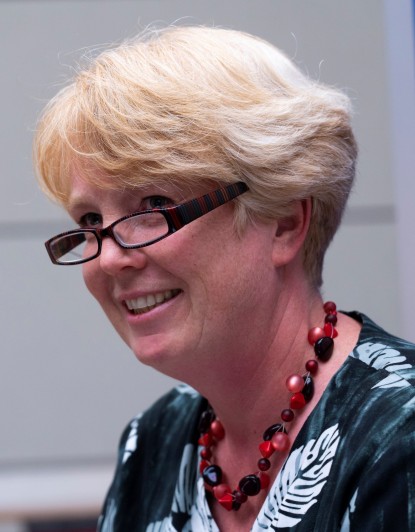Organized by the Research Group “Applied Linguistics” at the Institute of Linguistics and Literary Studies at TU Darmstadt: Prof. Dr. Nina Janich, Dr. Lisa Rhein & Dr. Niklas Simon
Contact: mediendiskurse_2025@linglit.tu-darmstadt.de
Call for Papers: “Good for us and good for the planet? Ecological discourses from an inter- and transdisciplinary perspective”
As early as 1972, the Club of Rome – an association of experts from various disciplines from more than 30 countries who are committed to a sustainable future for humanity – spoke of “The Limits to Growth” in its first international report. In 2022, the Club is now campaigning for an 'Earth for all' by calling for five major turnarounds in a “Survival Guide for our Planet” – including energy industry and agriculture/food – so that current and further generations have a future on this planet. The United Nations' “Agenda 2030” has been in force internationally since 2015: Not surprisingly, many of the 17 Sustainable Development Goals (SDGs) set out therein relate to ecological aspects such as “clean water” (Goal 6), “affordable and clean energy” (Goal 9), “sustainable consumption and production” (Goal 12), “climate action” (Goal 13) and “life below water” (Goal 14) or “life on land” (Goal 15). It is therefore not only the climate crisis, which has long been the subject of research, that has been declared a field of action, but also other global crises such as biodiversity loss and chemical pollution, which threaten to exceed planetary boundaries or have already done so.
These are just a few of the data and aspects that show which scientific, political, economic and media discourses are now inevitably shaping the Anthropocene, the 'age of mankind'. Ecological discourses therefore surround us and affect us in very different ways (e.g. Schäfer 2022). They take place in all sectors/fields of action, but are present in the mass media in very different ways – from the omnipresent climate change (see Schäfer & Bonfadelli, 2017, for a summary), to the increasingly present extinction of species, to chemical safety, which is barely visible in the media (e.g. Simon 2023). We encounter them in the form of political debates, massive civil society protests, non-profit initiatives or even in science communication. At all levels, questions such as: How is a 'good life' still possible in such a time, and how can necessary changes be conveyed or even motivated in terms of language and media? How is public media, political and scientific communication changing in the field of tension between a free market economy, a threatened environment and an uncertain future? What concrete arguments and analyses, positions and images of the future do the various media offer, and how do traditional (quality) media and social media networks, among others, compete here? How is the self-image of journalism changing in these social discourses, also against the backdrop of fake news and post-factual communication? How do the generations with their different life experiences, consumer habits and visions of the future meet in social media or according to mass media constructions?
In this field of research questions, for example
- from a critical-discourse-analytical perspective, political and economic power relations can be illuminated and the relationship between language, communication, medialization, politicization and action can be examined;
- from an ecolinguistic perspective, narratives and possibilities of storytelling aimed at community building and intrinsic motivation can be sought;
- from a communication and media studies perspective, the focus will be on comparing different approaches, formats and attitudinal effects from quality media to social media;
- from a political science perspective, the media mediation of civil society forms of protest and processes of politicization and polarization will be examined;
- from the perspective of visual and multimodal communication, postmodern and post-factual discourse formations will be examined on the basis of visualizations, visual types and multimodal communication formats;
- from a media ethics perspective, the journalistic self-image in the field of tension between information and enlightenment and the increasing pressure to act will be examined;
- from the perspective of journalism research, the use of language by journalists and the topics of reporting will be examined;
- from the perspective of strategic communication in, by and about organizations and institutions, topics, arguments and (advertising) strategies in the field of sustainability communication will be addressed;
- concrete implementationsin editorial offices, media or organizations will be examined and reflected upon from a practice-oriented perspective.
The conference on ecological media discourses in the Anthropocene advertised here therefore invites an inter- and transdisciplinary exchange on questions that concern acute social problems and whose treatment could possibly also contribute to solutions. Contributions from all disciplines are welcome that use different methods to shed light on different facets of the German-speaking and global environmental discourse in various media. The contributions can be more thematically oriented towards specific discourses or focus methodologically on innovative approaches to media and discourse research.
Literature cited
Schäfer, M.S., Bonfadelli, H. (2017). Environmental and climate change communication. In: Bonfadelli, H., Fähnrich, B., Lüthje, C., Milde, J., Rhomberg, M., Schäfer, M. (eds) Forschungsfeld Wissenschaftskommunikation. Springer VS, Wiesbaden. https://doi.org/10.1007/978-3-658-12898-2_17
Schäfer, T. (2022). Transformation and re-localization. Challenges in the face of climate emergency and species extinction. Communicatio Socialis (ComSoc) 55(2) 160-175. https://doi.org/10.5771/0010-3497-2022-2-160
Simon, N. (2023). Educating and demanding in the pesticide debate. On a text-world rhetoric of the constitution of knowledge. Boston/Berlin, de Gruyter (Language and Knowledge 55). https://doi.org/10.1515/9783111077369
Timetable:
- Submission of abstracts by 30.9.2024
- Review feedback until 30.11.2024
- Program publication and registration for the conference from approx. 15.12.2024
Language of the Conference: German
Further information on applications for presentations, panels, workshops or posters – see complete Call for Papers:
Call for Papers for download (opens in new tab)
Information on program, travel and abstracts follows.


